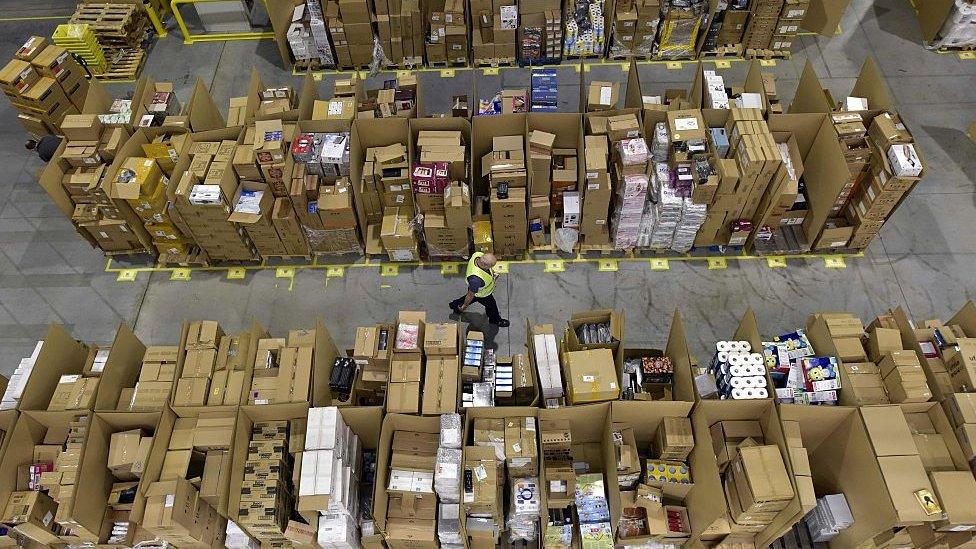The community that rejected Amazon
- Published
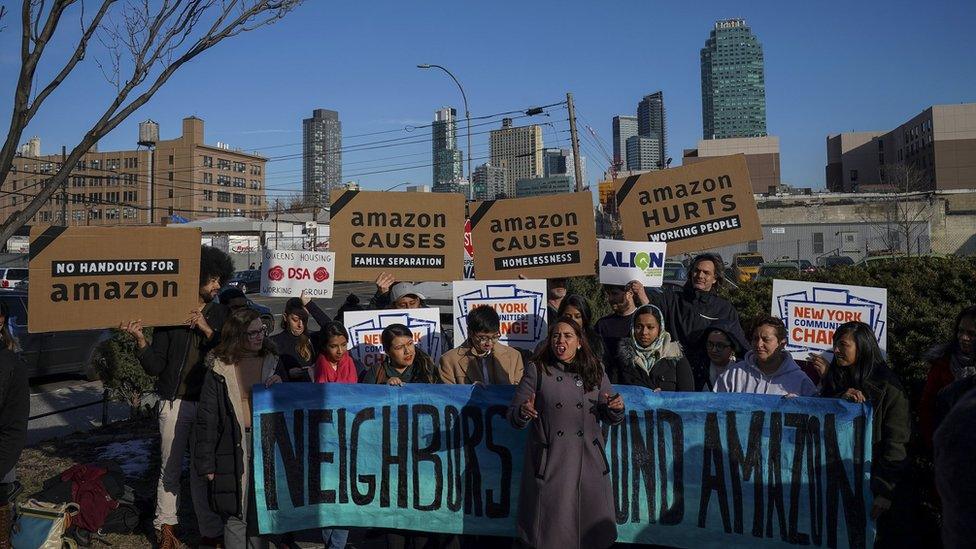
Amazon dropped its plan to create a campus in a changing neighbourhood of New York after backlash
A day after Amazon announced it would abandon controversial plans to build a new campus in New York City, the neighbourhood selected for the expansion was still in shock.
At Manducatis Rustica, an Italian restaurant on the local high street that was established in 1977, people were in mourning.
At the closest subway stop, there was a sense of relief.
The divided opinions reflected the fierce debate stirred by Amazon's plan, which would have added 25,000 jobs over 10 years to a waterfront district in Queens already grappling with fallout from years of rapid change.
"From a local standpoint, I'm happy," said Chad Pierce, 35, who has lived in the neighbourhood for nine years.
"It gives me the feeling I'll be able to live here for another three to five years."
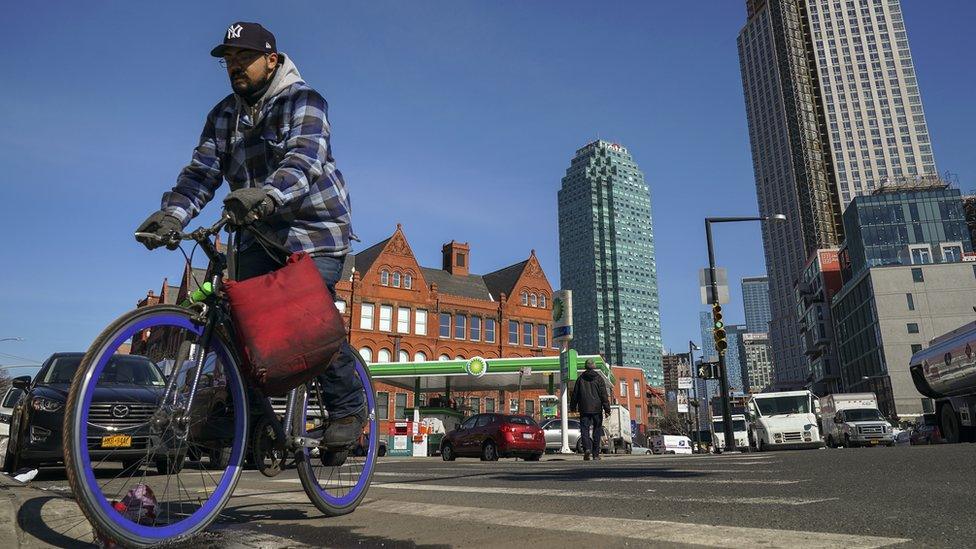
The Long Island City neighbourhood
Factories close, homes open
Once an industrial hub in slow decline, Long Island City now ranks as one of the fastest growing places in the United States.
More than 8,000 apartments have opened in the neighbourhood since 2015. It is expected to add almost 10,000 more by 2020.
The transformation of the neighbourhood, which sits on the East River just one subway stop away from midtown Manhattan, has not always been easy.
Rents are rising and older residents are being crowded by an influx of wealthier, more educated inhabitants.
Meanwhile, despite the growth, some local restaurants and shops have struggled, as weekend visits from new residents fail to make up for the weekday, working customers lost as commercial and manufacturing firms move away.
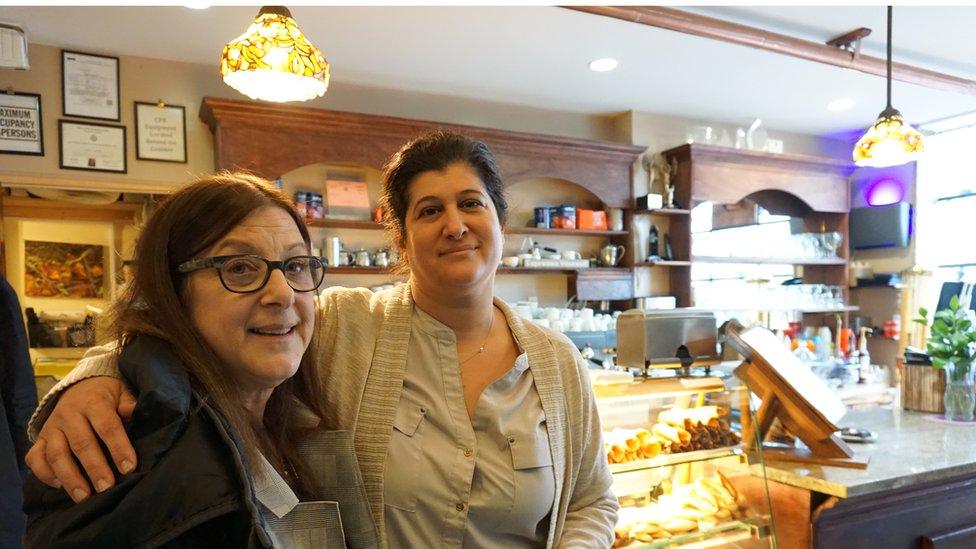
Gianna Cerbone and Donna Drimer are local business owners devastated by Amazon's about-face
At the Manducatis Rustica cafe, owner Gianna Cerbone said she had been forced to cut breakfast and lunch offerings.
But in Amazon's campus, she saw the opportunity for fortunes to reverse.
On Friday, Ms Cerbone held court as a a steady stream of visitors dropped by her restaurant to share their disappointment about Amazon's decision.
"I am devastated," Ms Cerbone said. "We need something that's going to sustain the community."
Backlash
The spot that Amazon had selected for its campus is a mix of old manufacturing buildings, home to taxi yards, government offices and tool supply shops that appear ripe for redevelopment when contrasted against the gleaming glass apartments nearby.
Recent polls found majority support for the project.
But the plan also triggered backlash, in part due to the roughly $3bn (£2.3bn) in state and city tax incentives promised to Amazon if it delivered on its hiring and investment pledges.
Activists and local politicians questioned the necessity of the incentives, which amounted to more than $48,000 per job - far more generous than the deal Amazon accepted in northern Virginia, near Washington DC, where it has plans for a similar campus.
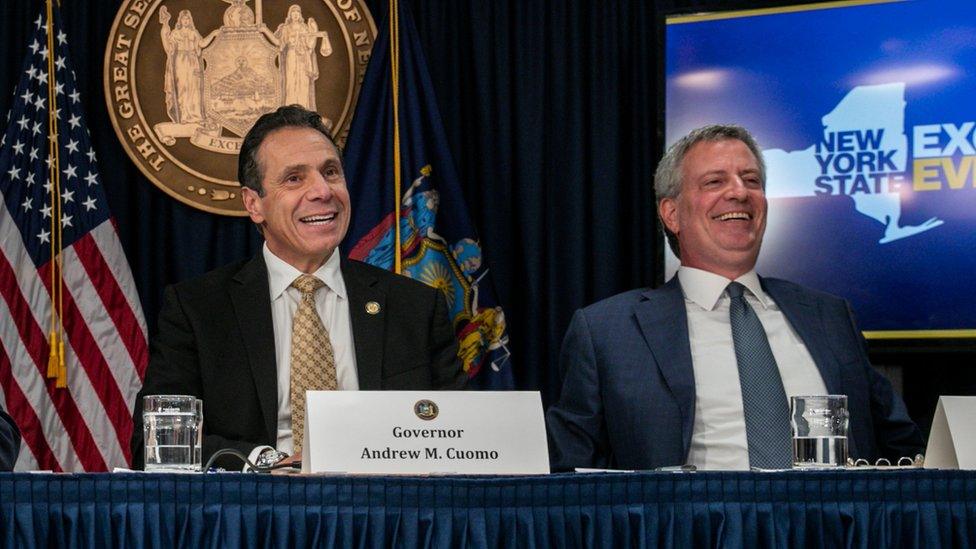
New York Governor Andrew Cuomo and New York City Mayor Bill de Blasio championed the deal
Opponents also charged that an influx of Amazon workers would strain the neighbourhood, leading to even higher rents and more crowded streets.
"Long Island City is bursting at the seams. We're building buildings on top of each other," said Mr Pierce.
Governor Andrew Cuomo and Mayor Bill de Blasio, who championed the deal, argued the cost of the tax breaks would be more than offset by the new growth spurred by Amazon's hiring and investment.
They said the state could reap as much as $27bn in new tax revenue that could be used to upgrade the neighbourhood's parks, transit and schools.
Supporter Ronny Beyer, 38, who moved to Long Island City about 14 years ago, said the project was a "once-in-a-lifetime opportunity".
"Now we have nothing," he said.
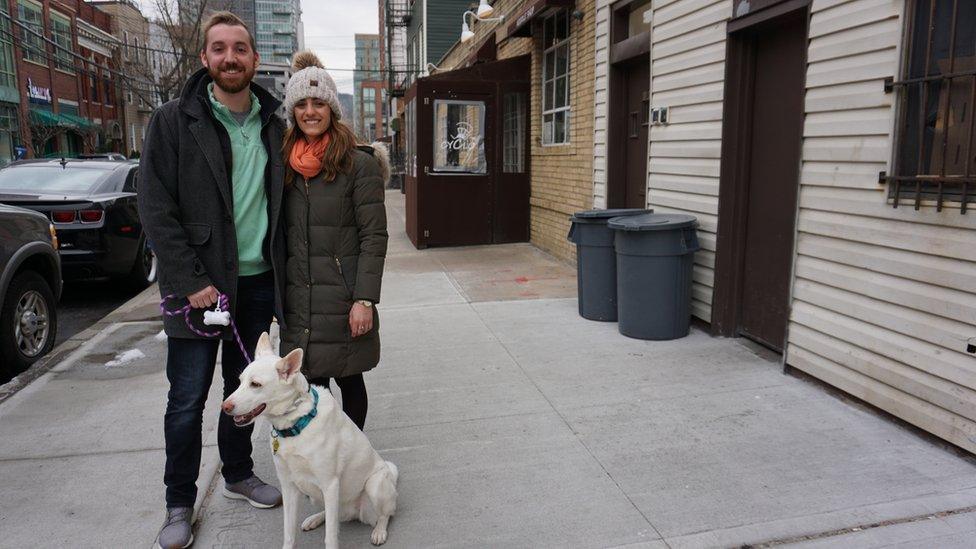
Andrew McGowan predicted other companies would come in Amazon's stead
'Who'll come here now?'
Andrew McGowan, 27, who moved to Long Island City about two years ago, said he was not worried about the consequences of rebuffing Amazon.
"The area is going to be fine," he said. "It's just going to be more sustainable growth."
Others were more concerned.
"Who's going to come here now?" asked Ms Cerbone. "Who's going to go to the place that fights Amazon?"
- Published14 February 2019
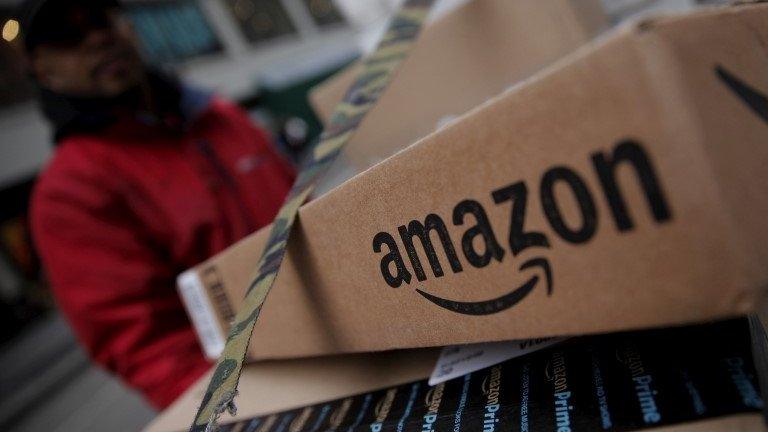
- Published13 February 2019
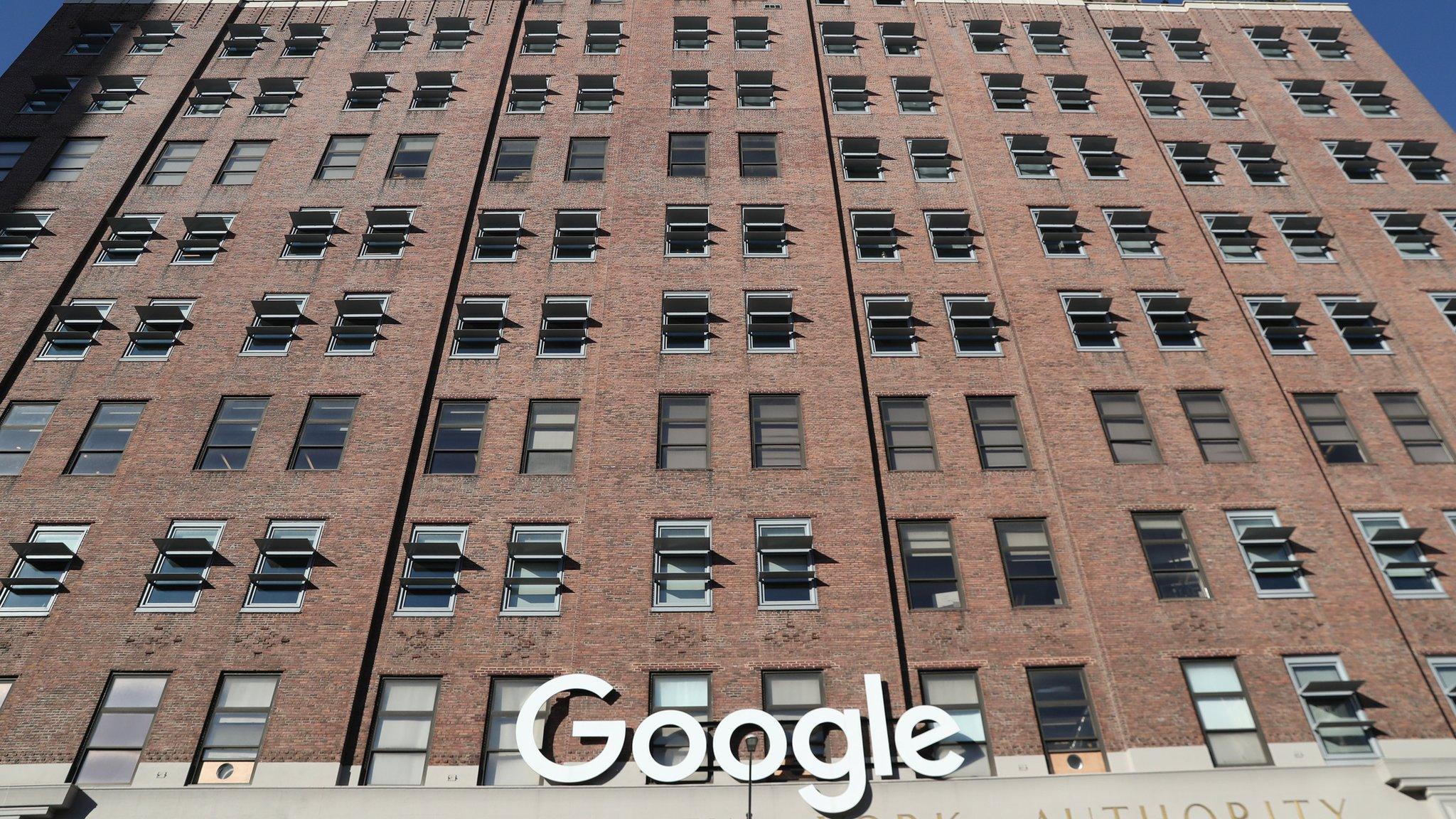
- Published11 January 2019
